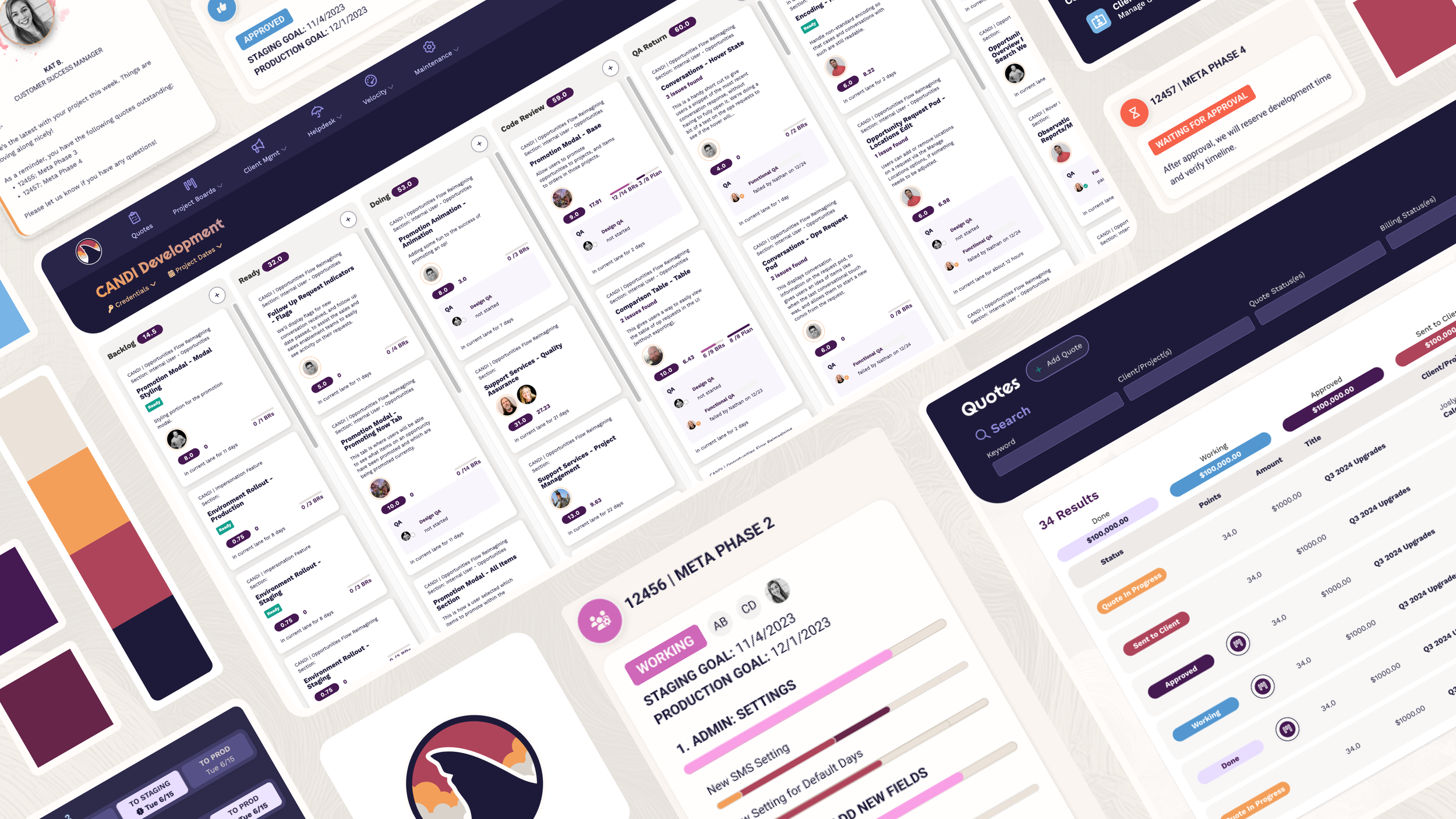
Blog
In Which We Take a Stand
A collection of viewpoints, articles and opinions on user experience, technology, AI, and leadership in ever-evolving, high stakes industries.
AI Investments That Actually Deliver ROI in Highly Regulated Industries (That Aren’t Chatbots)
Chatbots flopped for many companies. Discover 3 AI applications with proven ROI that carry both internal and external applications in highly regulated industries.
Why Great Tech Ideas Fail: Vision vs Execution
Discover why visionaries and operators clash in tech projects and how the right balance of vision and process prevents failure and drives innovation.
How to Use AI Personalization Without the Ick Factor
AI and personalization can create trust through the "I see you" moment. Learn how to avoid chatbot pitfalls and build user connections that last.
How Visionary Leaders Stay Motivated While Waiting for Success
Every leader faces those restless waiting periods. Based on my own experiences, here's what I’ve found actually works when your Golden Carrot feels distant.
Can an App Shift Brand Perception?
Learn how apps can transform brand perception through strategic design. Practical framework for CEOs, CTOs & CMOs in regulated industries.
Why User Experience Matters When The User Is Not a Decision Maker
In industries like insurance or finance, end users don't choose you—but they can influence who does. Here's why UX is your secret competitive weapon.
Q&A: How do you turn app users into brand advocates?
Getting users is hard. Keeping them is harder. But getting them to champion your brand? Learn how to earn that promotion from your app users.
Q&A: Why isn’t our app more sticky?
From nailing entry points to creating habit-forming loops, discover strategies to make your app more sticky and retain users long-term.
Q&A: Why Aren’t More People Signing Up for Our App?
Low adoption of your app, SaaS product, or portal? Discover why your signup conversion is low along with how to fix process leaks, optimize messaging, remove cliffs, and boost signups.
The 5 Humbling Stages of Tech Leadership
Discover the 5 stages tech leaders go through—from "I'd rather be building" to strategic cartographer and see how to identify patterns holding you back.
What White House Executive Orders Tell Us About AI Risks Ahead
How will new AI executive orders reshape costs & competition? Learn to navigate rising AI expenses and build sustainable strategies beyond efficiency gains.
Executive Overconfidence Meets Opportunity in AI
Regulated industries have higher AI trust rates but are stuck on chatbots (and saddled with a case of executive overconfidence). Learn why healthcare, finance & insurance need better AI strategies.
Don’t Let AI FOMO Make You Build the Wrong Things
Move your app past AI FOMO to build solutions that matter. Discover how using AI to address functional and emotional user needs creates real loyalty.
Feeling drained? You’re not alone.
Every visionary feels drained from time to time. Find out how to get your spark back and how to protect it so you don’t become burned out.
Users Actually Want More Notifications (When You Do Them Right)
Learn how your app’s push, email, SMS & in-app notifications can drive user engagement in regulated industries without overwhelming or annoying users.
Start building.
The first step to work with us is an initial meeting. You can schedule that using the button below.




















